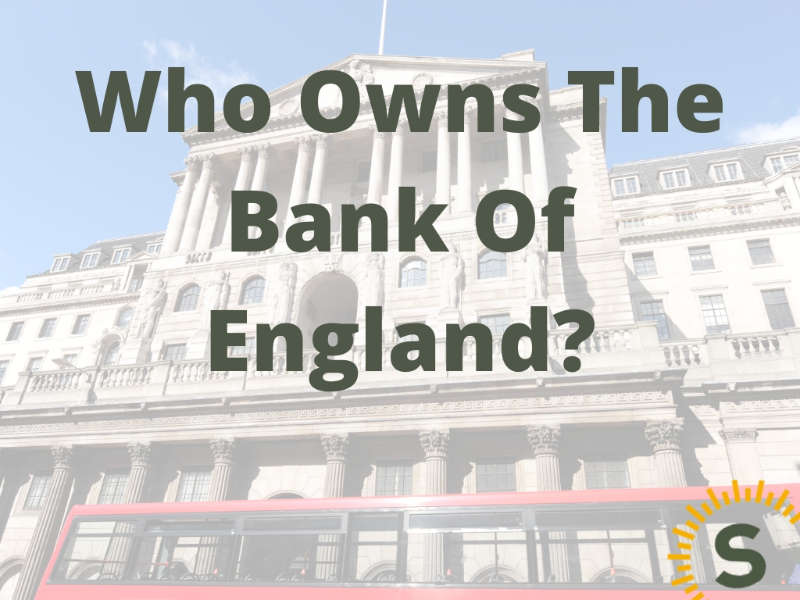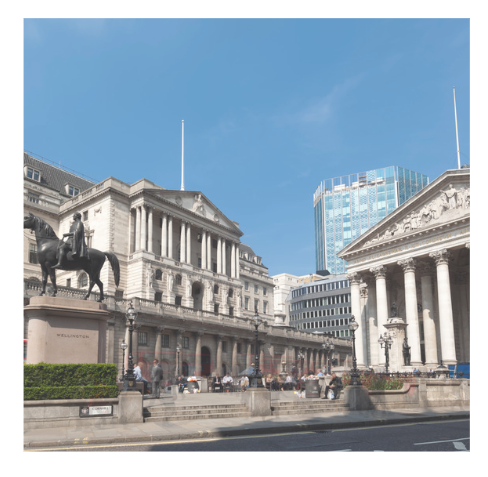
The Bank of England is an important institution in the UK that handles the country's money and financial matters. Many people are curious about who owns it. Surprisingly, it's not owned by any individual or private group; it actually belongs to the people of the UK.
This means it's a public organisation, accountable to the government, and ultimately responsible for serving the citizens.
In this insight, we'll explore the history of the Bank of England's ownership and how it has changed over time. We'll also see how this impacts the financial situation in the UK today. So get ready to learn more about central banking and its significance!
The Bank of England is owned by the people of the United Kingdom, making it a public institution. Its ownership structure aims to balance accountability and independence. While criticism and controversies exist, the bank plays a crucial role in the UK's financial stability and growth. Other central banks have similar ownership arrangements worldwide.
 Historical Background and Establishment of the Bank of England
Historical Background and Establishment of the Bank of EnglandIn the late 1600s, England was facing tough times after the Glorious Revolution and the Nine Years' War. To stabilize the economy and handle the government's growing debts, they needed a reliable financial institution. So, they created the Bank of England in 1694.
This was a big deal because it was the first bank allowed to issue banknotes. These banknotes became an essential part of the British economy. The bank's main job was to lend money to the government and, in return, they got special privileges, like the right to issue those banknotes. This helped the government manage its debt and raise funds effectively.
As time passed, the Bank of England became vital for the UK's economic growth. During financial crises, it acted as a lender of last resort, ensuring the stability of the banking system. The bank also played a crucial role in setting up a modern monetary policy. It could influence interest rates and control the supply of money, which helped manage inflation and boost economic growth.
To understand who owns the Bank of England, we need to know about its structure and how it's run. The bank is managed by a group called the Court of Directors. This group includes both executive members (like the Governor and Deputy Governor) and non-executive members appointed by the UK government.
The Court of Directors has the important task of making decisions about the bank's operations, including things like monetary policy and financial stability. They regularly meet to talk about the state of the economy and create policies based on that. The Governor, who is the head of the bank, represents the institution both within the UK and internationally. The Governor's role is crucial in shaping the financial system in the UK.
The Bank of England has important roles that help the UK's economy stay stable and successful. One of its main jobs is to keep prices stable, which it does by managing monetary policy. The bank has a group called the Monetary Policy Committee (MPC) that decides on the right interest rates to control inflation and support the economy's growth.
Besides handling monetary policy, the Bank of England is also responsible for making sure the financial system stays secure. It acts as a regulator and supervisor for banks and other financial institutions. The bank sets and enforces rules to protect consumers and keep the financial sector trustworthy. Additionally, it plays a crucial part in dealing with government debt. It provides money to the market and helps the government borrow funds smoothly. All of these functions are essential for the well-being of the UK's economy.
Many people believe that the Bank of England is privately owned, but that's not true. It's actually a public institution owned by the people of the UK. The way it's owned is unique compared to other central banks worldwide. The UK government has the majority of shares, which makes it the ultimate owner. However, these shares can't be bought or sold, and the government doesn't get any financial benefits from them. Instead, the shares show that the government is responsible for overseeing the bank's operations and how it performs.
The misconception about the bank's ownership comes from historical events and conspiracy theories. Some people falsely claim that the Rothschild family, a prominent banking family in the 19th century, own the Bank of England and control the British economy. But there's no real evidence to support this claim. While the Rothschilds had influence in the banking industry, they were not the owners of the Bank of England. It's essential to separate fact from fiction when understanding the bank's ownership.
As a public institution, the Bank of England works independently from the UK government. This independence is crucial to make sure monetary policy is credible and effective. However, the bank still answers to the government and follows the framework set by the government. The UK Chancellor of the Exchequer is in charge of appointing the Governor and Deputy Governor of the bank, and the government can change the bank's mandate and objectives if needed.
Even though they operate independently, the Bank of England and the UK government cooperate and understand each other. The bank regularly communicates with the government, sharing information about the economy and how monetary policy decisions will affect it. This collaboration ensures that the bank's policies align with the government's broader economic goals.
The ownership structure of the Bank of England aims to ensure transparency and accountability, but it has faced criticism and controversies. Some people are concerned that the government's majority ownership could lead to political interference and compromise the bank's independence. Critics also question how effective the bank's governance structure is and call for reforms to make it more transparent and trustworthy.
Additionally, there has been controversy over the bank's role in the 2008 financial crisis. Some critics argue that the bank didn't do enough to prevent the crisis and properly regulate the banking sector, resulting in serious economic consequences. This criticism led to a review of the bank's responsibilities and a push for stronger regulatory measures to prevent similar crises in the future.
The Bank of England's ownership structure, though unique, is not completely unheard of. Many other central banks worldwide have similar ownership arrangements. For instance, the Federal Reserve System in the United States is owned by member banks, and the European Central Bank is owned by the central banks of Eurozone member countries. These ownership setups aim to balance public accountability with operational independence.
The ownership of central banks is crucial for their governance and helps prevent undue influence and conflicts of interest. The various ownership structures reflect the diverse political and economic contexts in which these institutions function. Each country designs its central bank's ownership in a way that aligns with its specific needs and values.
In summary, as to who owns the Bank of England, it is not privately owned, but rather a public entity accountable to the UK government and its citizens. Its ownership structure is distinct, aiming to balance public accountability and operational independence. The bank plays a vital role in shaping the UK's financial landscape, ensuring price stability, and maintaining a stable financial system. Despite facing criticisms and controversies, the Bank of England remains a significant player in the global financial sphere. Its history and ownership shed light on the intriguing world of central banking and its influence.

Stuart is an expert in Property, Money, Banking & Finance, having worked in retail and investment banking for 10+ years before founding Sunny Avenue. Stuart has spent his career studying finance. He holds qualifications in financial studies, mortgage advice & practice, banking operations, dealing & financial markets, derivatives, securities & investments.





Our website offers information about financial products such as investing, savings, equity release, mortgages, and insurance. None of the information on Sunny Avenue constitutes personal advice. Sunny Avenue does not offer any of these services directly and we only act as a directory service to connect you to the experts. If you require further information to proceed you will need to request advice, for example from the financial advisers listed. If you decide to invest, read the important investment notes provided first, decide how to proceed on your own basis, and remember that investments can go up and down in value, so you could get back less than you put in.
Think carefully before securing debts against your home. A mortgage is a loan secured on your home, which you could lose if you do not keep up your mortgage payments. Check that any mortgage will meet your needs if you want to move or sell your home or you want your family to inherit it. If you are in any doubt, seek independent advice.